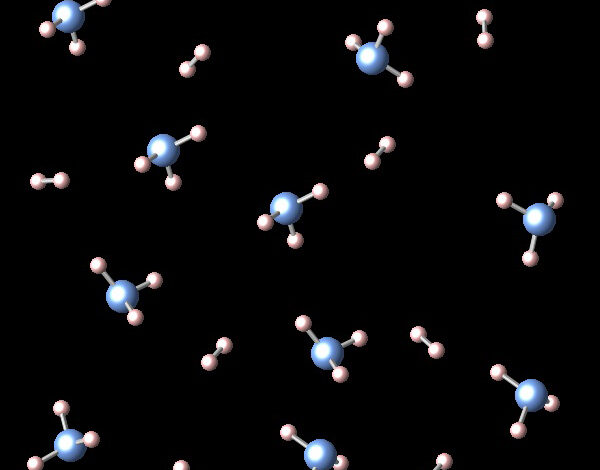
Why Are Elements and Compounds Important? When it comes to understanding the world around us, the study of chemistry plays a vital role. Chemistry is the branch of science that deals with the composition, properties, and interactions of matter. At the core of chemistry are elements and compounds, which are fundamental building blocks of matter.
The Basics: Elements and Compounds
Before we delve into the importance of elements and compounds, let’s establish a clear understanding of what they are.
Elements are pure substances that cannot be broken down into simpler substances by ordinary chemical means. They are composed of atoms, which are the smallest units of an element that retain its chemical properties. Elements are represented by symbols, such as hydrogen (H), carbon (C), oxygen (O), and many more.
On the other hand, compounds are substances that consist of two or more elements chemically combined in fixed proportions. These combinations create new substances with distinct properties. Compounds are represented by chemical formulas, such as water (H₂O), carbon dioxide (CO₂), and sodium chloride (NaCl).
Understanding Elements
Atomic Structure and Elements
Elements are composed of atoms, which consist of a nucleus containing protons and neutrons, surrounded by electrons. The number of protons in an atom’s nucleus defines its atomic number and determines the element it represents. For example, an atom with one proton is hydrogen, while an atom with six protons is carbon.
The arrangement of electrons in an atom’s energy levels determines its chemical behavior. Elements are organized based on their atomic numbers in the Periodic Table.
Periodic Table: A Comprehensive Guide
The Periodic Table is a systematic arrangement of elements, providing valuable information about their properties and relationships. It is divided into groups and periods, with each element assigned a specific position based on its atomic structure. The Periodic Table helps scientists predict the behavior of elements and discover new ones.
Read More: How to Uncover the Mysteries of Venus In 2023
Significance of Compounds
Formation and Properties
Compounds play a crucial role in chemistry and our daily lives. They form when elements chemically react with each other, combining in specific ratios. The resulting compounds possess unique properties different from the individual elements involved.
Role of Compounds in Daily Life
Compounds have countless applications in our everyday lives. From the medications we take to the materials we use, compounds are integral to various industries. For instance, aspirin is a compound used as a pain reliever, and plastic is a compound widely employed in packaging and manufacturing.
Elements and Compounds in Industry
Elements and compounds find extensive use in various industries, contributing to technological advancements and innovation.
The automotive industry relies on elements like iron, aluminum, and titanium for manufacturing sturdy and lightweight components. Compounds like gasoline (a mixture of hydrocarbons) power our vehicles, while synthetic materials like plastics and rubber contribute to their construction.
The electronics industry heavily relies on elements such as silicon, copper, and gold. These elements are crucial for the production of computer chips, circuit boards, and connectors. Compound semiconductors, like gallium nitride (GaN), are also essential for modern electronic devices.
Environmental Importance
Elements and compounds have a significant impact on the environment and ecosystems.
Elements like carbon, nitrogen, and phosphorus are essential for the survival of living organisms. Carbon forms the backbone of organic compounds, while nitrogen and phosphorus are crucial for the growth of plants and the functioning of ecosystems.
However, human activities can also introduce harmful compounds into the environment, such as air pollutants and toxic chemicals. Understanding the behavior and effects of these compounds is crucial for environmental conservation and remediation efforts.
Conclusion
Elements and compounds are the fundamental building blocks of matter. They play a pivotal role in chemistry, industry, daily life, and environmental systems. Elements contribute to the diversity of matter, while compounds provide unique properties and applications. By studying and harnessing the power of elements and compounds, scientists continue to advance our understanding of the world and improve the quality of human life.
FAQs (Frequently Asked Questions)
Q: How many elements are there in the Periodic Table?
A: There are currently 118 known elements.
Q: Are elements and compounds the same thing?
A: No, elements and compounds are different. Elements are pure substances, while compounds are combinations of elements.
Q: What is the most abundant element in the Earth’s crust?
A: Oxygen is the most abundant element, making up about 46% of the Earth’s crust.
Q: Can elements and compounds be broken down into simpler substances?
A: Elements cannot be broken down further, while compounds can be decomposed into their constituent elements through chemical reactions.
Q: Why is the Periodic Table important?
A: The Periodic Table organizes elements based on their properties, helping scientists understand their behavior and predict their interactions.











